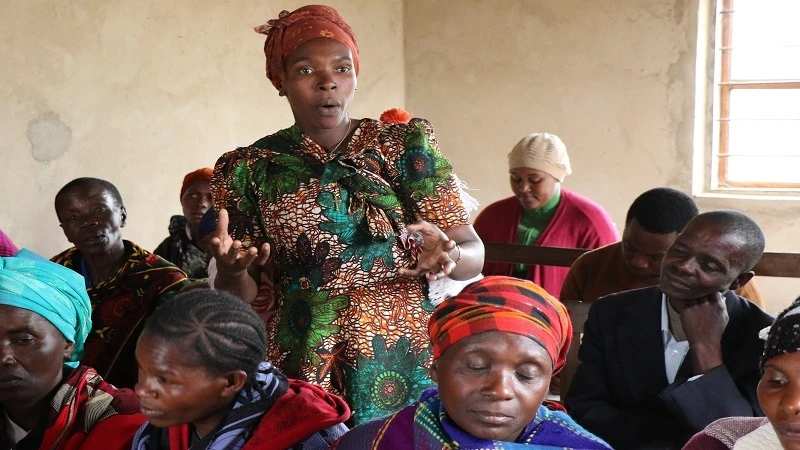Treasury Registrar readies 1.0trn/- for Dividend Day

A TOTAL of one trillion shillings will have been collected by the Office of the Treasury Registrar by the time President Samia Suluhu Hassan is offered the fiscal year’s non-tax collections from public firms.
Nehemiah Mchechu, the registrar said in a statement late last week that the government has set an ambitious collection target of 1.11trn/- non tax revenues, with all the relevant institutions having been directed to fulfill their obligations by June 30.
Tomorrow is Dividend Day, where the State House presentation is expected to feature as a milestone in “recognizing the growing role of public enterprises in strengthening fiscal sustainability and national self-reliance,” he said.
Crediting non-tax revenue as an illustration on how the country leverages its assets, he said non-tax revenue is not supplementary income but a pillar of sustainable budget financing.
“These funds directly support sectors like education, healthcare, water and infrastructure—without expanding debt or overburdening taxpayers,” he declared.
Non-tax revenues include dividends from profitable state owned firms, 15 percent contributions from gross revenues, surplus remittances and other statutory transfers, all of which are channeled into the government’s consolidated fund, he explained.
The government is leaning heavily on non-tax revenue collected from public institutions, where total assets in formally owned and minority-share firms stand at 86.3trn/-, he stated.
Non-tax revenue collection has shown steady growth over the past four years, as from fiscal 2020/21 to fiscal 2023/24 collections rose from 637.67bn/- to 767.2bn/-, representing a 20.3 percent increase.
Improved financial performance, stronger corporate governance and better enforcement explained the growth, while the registrar expects even bigger numbers by the end of this financial year.
State owned and government-affiliated firms must now be judged not only by service delivery but also by their financial returns. “Every shilling remitted translates into classroom desks, medicine in clinics, or clean water in rural areas,” the registrar intoned.
By reducing dependency on foreign aid and commercial loans, non-tax revenue enhances Tanzania’s fiscal autonomy and helps shield the economy from external shocks. “This is a performance-driven model. Institutions must deliver on their mandate and demonstrate financial accountability,” he asserted
Non-tax revenue directly finances grassroots projects like rural health centers, classrooms, clean water access and more, he said, while Lightness Mauki, director of performance management, monitoring, and evaluation at OTR, said the transparency fosters civic confidence.
“Citizens begin to see themselves not just as beneficiaries but as stakeholders in activities related to finances of public companies,” she stated.
Digital tools like PlanRep and electronic payment systems are now used across ministries and agencies to plug revenue leakages, improve traceability and ensure timely remittances.
These systems also allow real-time audits and performance tracking of state forms to identify potential income sources and reduce underperformance, she said.
The collection of dividends is governed by the Companies Act and the Public Corporations Act, while statutory contributions—such as the 15 percent from gross revenue—are mandated by the Public Finance Act, he said.
Additional sources include 70 percent of annual surpluses, loan repayments and telecom traffic monitoring fees, all of which help diversify the revenue base, she stated.
Neema Musomba, the OTR director of management services, said that every public institution and every company with government shares must contribute. “That is how we secure the future of Tanzania,” she stated, underlining that Dividend Day 2025 “will not only celebrate achievements but also signal a renewed push for accountability and performance.”
The rising value and number of institutional contributions reflect a maturing results-oriented culture in public finance management—one that aligns with the broader vision of inclusive and sustainable development, she added.
Top Headlines
© 2025 IPPMEDIA.COM. ALL RIGHTS RESERVED






















